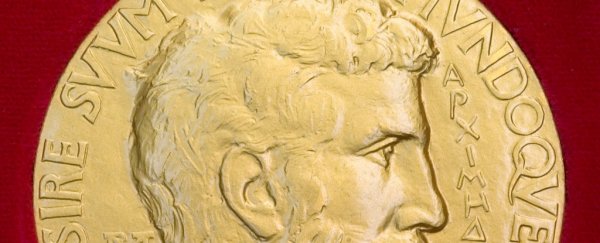Meetings of the International Congress of Mathematics are usually pretty tame affairs, despite handing out one of the most prestigious award in mathematics.
But this year, the meeting was shaken up after the Fields medal, also known as the 'Nobel Prize' of mathematics, was stolen from one of the winners just 30 minutes after he was awarded the prize in Rio de Janeiro, Brazil.
Every four years a selection committee chooses between two and four mathematicians under 40 for their "existing work and for the promise of future achievement" for an award called the Fields medal.
This year one of the winners, Caucher Birkar – a Cambridge professor and former asylum seeker – had left his new medal in his briefcase, along with his phone and wallet, and placed it on a table in the conference room.
Only a matter of minutes later he noticed it was gone, according to Brazilian newspaper O Globo.
Later, the briefcase was found outside the venue, but the medal and wallet were missing.
"It's a pretty sad and pathetic theft," Marinello, the founder and CEO of Art Recovery International, tells Peter Hess at Inverse.
"The amount of gold metal contained in this medal is insignificant compared to the professional and emotional value to the recipient."
The Fields medal is made out of 14-karat gold and, according to experts, it is worth around US$4,000.
Which, to be fair, is a lot of money for anyone who is struggling, and may also not know the medal's exact value.
The Fields medal awardees also receive a cash prize of $US11,500 each to further their work.
Reports have suggested that the burglar was identified from security camera footage, but at this point, no one has been arrested, and no medal recovered.
Despite this unfortunate theft, Birkar's collegues are still very excited for his win.
"This is absolutely phenomenal, both for Caucher and for mathematics at Cambridge," said Gabriel Paternain, head of Cambridge University's department of pure mathematics and mathematical statistics.
"Caucher was already an exceptional young researcher when he came to Cambridge, and he's now one of the most remarkable people in this field."
Birkar was born in northwestern Iran and moved to England in 2000 as a political asylum seeker.
While studying at Tehran University in Iran, the math club would have pictures of previous Fields Medal winners on the walls, he said to Quanta magazine.
"I looked at them and said to myself, 'Will I ever meet one of these people?' At that time in Iran, I couldn't even know that I'd be able to go to the West," he said.
"To go from the point that I didn't imagine meeting these people to the point where someday I hold a medal myself — I just couldn't imagine that this would come true."
The other three winners this year are Alessio Figalli, of the Swiss Federal Institute of Technology in Zurich; Peter Scholze from the University of Bonn; and Akshay Venkatesh, of the Institute for Advanced Study in Princeton and Stanford University in California.
We hope that the medal is returned to its rightful owner soon.
